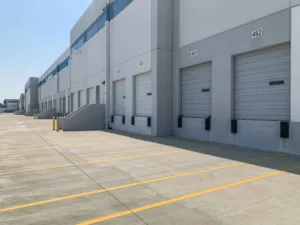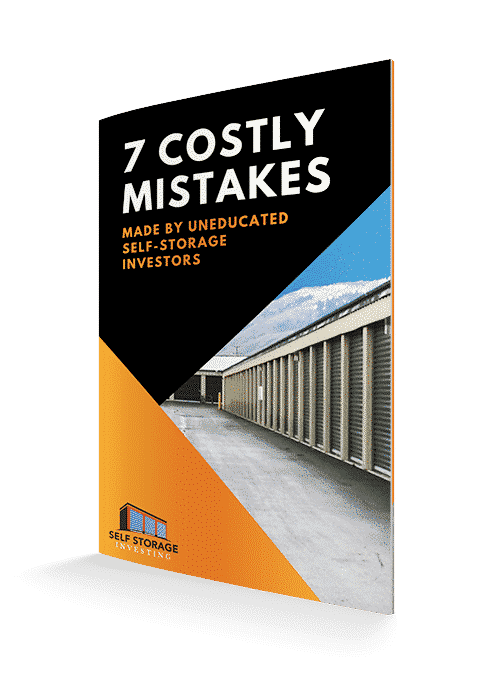Real estate investments of any kind are always enticing and rarely disappointing choices; that is, if made wisely and with attention to what could go wrong. Especially since as a real estate investor, there are so many options to pick from.
Different types of real estate can prove pretty profitable with varying paces of cash flow. You could go with residential and be exposed to fewer risks. Choosing to invest in residential would undoubtedly ensure a steady if the unremarkable return for your investment. Investing in the development of rental apartments and single-family homes are among the options you have for investing in residential real estate.
Commercial real estate investing, however, will bring a whole set of different choices and conditions. They could be very confusing and sometimes difficult to wrap your head around, especially if you’re a beginner. But sit tight and don’t worry. We will fill you in on some basic ground rules and some commercial real estate investment tips for beginners. Let’s get started.
Real Estate Investment
Investing in properties has been a dependable, reliable option for a very long time. Throughout the decades, it has taken many shapes and forms. Regardless of the property’s function and size, investing in real estate can be through purchase, ownership, renting out, selling, or merely handling any type of property.
As an investment option, it is often associated with safe and stable returns. However, there are downsides to real estate investing. Its dependence on consistent cash flow and limited liquidity are negatives. But if managed properly, any type of property can become a well-serving asset in your investment portfolio.
Residential or Commercial – That’s the Question
Although many people would argue that real estate is among the least risky investments, it comes with its own unique risk factors, especially considering its capital-intensive nature. The focus is always on making the right calls consistently. The first one to make is deciding on the type of real estate you want to put your money in. You will notice several specific sub-categories, but the two main ones you can invest in are residential and commercial real estate.
Residential Real Estate
As the name suggests, residential properties are basically any building/structure where people live. Residential real estate examples include single-family homes, townhouses, condominiums, multifamily houses, apartment buildings with fewer than five units, cooperatives, duplexes, etc.

Commercial Real Estate
What differentiates commercial real estate from other forms is its business and income-driven purpose. Commercial real estate encompasses any property that is utilized for businesses or ventures that result in returns.
There are several types of commercial real estate properties, from self-storage units to service centers (like hospitals, healthcare facilities, etc.) and from single-unit stores to strip malls, shopping centers, etc. They are categorized in several ways. Since we have already discussed their various types, we can now categorize them by purpose.
There are commercial properties that deal with leisure/entertainment (restaurants, hotels, cafes, sports facilities, etc.). Then there are those that are used for retail. They’re defined as stores of any kind that display and sell goods and services, retail spaces occupied by retail tenants representing single companies, shopping malls together with the facilities around them, shops in general, etc.
Office spaces (whether serviced or dedicated to just offices) and shared or individually rented workspaces constitute the office category in commercial properties. Healthcare real estate includes buildings such as medical centers, clinics, hospitals, nursing homes for the disabled or the elderly, etc.
Another property class for commercial real estate based on purpose is housing buildings. They differ from residential real estate due to their size/scale and the purpose they were developed for.
Self-storage units and warehouses are also facilities that can be great commercial real estate investments with high rental revenue and insignificant loss when it comes to vacancy rates. If managed well, self-storage facilities can be one of the most profitable real estate investments. Access Self Storage Investing for your free book on how to succeed in this rewarding sector.
Be Careful Reaching for the Stars
Investing in real estate of any capacity, if done properly, can be a great investment and generate considerable profits. Between the two basic options you have in real estate, the commercial has far higher revenue potential but conversely exposes you to more risk factors than a residential property.
Basics of Commercial Real Estate Investing
As a commercial real estate investment rookie, you must know the basic positives that come with it and try your hardest to work towards it. Especially since you are taking a lot more risk by putting more money into it (compared to residential).
The main reason why people tend to choose commercial real estate for investing despite its risks is the substantially higher income projections. The average rate of return on investment for a commercial property is somewhere between 6-12%. While for residential real estate properties, the figure ranges from 1-4%.
Another factor that beginners in the market should be aware of and try to use to their advantage is that fewer people tend to invest in commercial real estate because of its complexities and risks. This gives the investor the advantage to find the investment opportunity with the highest projected return without the fear of outside competition.
Suppose the commercial real estate project, say a shopping center or any form of rental property, reaches fruition. In that event, the investor doesn’t need to worry that much over vacancy rates, meaning taking into account the size/scale of a commercial property, there tends to be a higher number of units, and lower vacancy rates have less of an impact on your income, compared to a vacancy in a condo with four residential units.
There are also some advantages rooted in asset types that encourage you to work with tenants for business purposes rather than residential tenants. One case in point is the business owner’s tendency to keep a clean and presentable store/firm. This obliges them to have a reliable system for maintenance, thereby curtailing your expenses.
Working with businesses also works to your advantage as an owner since it helps build relationships with them, which could benefit you in the future. These relations are especially important because of the longer leases, granting you time for the relationship to develop and gives you the space to network and engage with the community that your property is hosting.
Longer lease periods also contribute to a consistent cash flow. There is also the double and triple net lease, also bolstering your income by cutting down on expenses for insurance, maintenance, taxes, etc. This also means you get to worry less about the possibility of multiple units being vacant for longer periods of time.
You must have heard about those nagging landlords and their reputation of how they tend to complain more about tenant issues rather than their rental income. This is mostly due to the fact that buildings inhabited around the clock are likely to need more attention, maintenance, etc.
Commercial property, on the other hand, is exempt from such constant use. It operates mostly during working hours of working days. This means that it is not as exhausted, and it lasts longer. In addition, the chances are that you will not have to respond to an emergency maintenance call in the middle of the night on a weekend.
Make Up Your Mind
Residential real estate can be categorized as safe, if not necessarily great on the return front. However, commercial real estate investments are the right investment choice for those who want to put a bigger chunk of money in the mix and expect bigger income streams. So, we will focus on that.
The extensive diversity in the types of possible investments, together with the appeal of passive investment, brings many beginner real estate investors into the market. As a beginner, you will need a workable knowledge of how to invest in commercial real estate. There is no one way to greater returns in the business of commercial real estate investing. What you need to do is look at your financial situation, investment preferences, interests, etc.
The different sizes and purposes that commercial property comes in have created an investment atmosphere that is far from boring. It is a world of exciting opportunities. Below, we will list several commercial real estate investment options you have and a few things beginners need to be aware of.
Real Estate Investment Trusts (REITs)
REITs accumulate investments from a number of investors and then place them into a property portfolio. This would give the investors the opportunity to be part of an investment that would have been impossible for them if they were to go into it individually.
One of the advantages of REITs is that they allow a wider range of starting points. It means you can start investing with lower sums. Also, they work on a dividend-based return system. Based on each investor’s share and the trust’s investment portfolio, investors will receive various returns on their investments over time.
In the long run, dividend growth and capital appreciation make REITs a great option for both short-term returns and long-term capital growth. You must also note that many real estate investment trusts work in specific fields and have specialized portfolios.
Another factor to consider is that as an investor you have the choice between higher dividends with less capital growth or higher growth in capital in the long term with more modest periodical dividends.
Real Estate Syndication
Much like REITs, real estate syndication is for the purpose of raising capital through investing in properties. In real estate syndication, a syndicator/sponsor, who could be an individual, a group of investors, or a company, gets a number of entities to invest in a real estate project and oversee the development process. Each of the investors will have a share of the returns.

Investors that participate in a real estate syndication obtain the chance to invest in a property that could have been outside of their reach, either legally or financially. In this type of investment, the role of the investors in making choices following their investment is so limited that they are literally called silent (also limited/passive) investors, generating passive income.
Therefore, as a real estate investment freshman, you must know that once you have decided to trust your money with the syndicator, you will not be able to have an impact or leverage over most of the decisions that are made. This should prompt you to be more cautious with your choices before deciding on a real estate syndication investment. However, this also allows your income from such a venture to be truly passive, requiring little effort and time.
The factors that play the most important roles in choosing the project include several elements that, with enough care and attention, even a real estate investment beginner can reliably analyze. The syndicator’s experience, the property evaluation, audits and surveys presented by the syndicator, and projected returns are among the factors you can look into for yourself and use to attain a more substantial ground for judgment.
Sometimes, agreements made with a syndicator include small items that appear unimportant but might just show up on your final bill and be redacted from your profit since you’ve already agreed to them. Therefore, pay close attention to the minute details of the contract.
Real Estate Stocks and Mutual Funds
Deciding to invest in real estate stocks or mutual funds would be wise for those who seek a more diversified investment portfolio. Mutual funds themselves invest primarily in real estate investment trusts, but investing in mutual funds will give you the chance to have a more diverse portfolio of investments since you get to put your money into different properties.
This diversity, in turn, will expand a bigger safety net for your capital since the risks are more adjustable through having a portfolio with a reliable balance of risks and returns. Just like real estate investment trusts, mutual funds give the investor the choice of investing in smaller amounts. And they also are very easy to liquidate and don’t require a lengthy process to be transformed back into hard cash.
Another advantage to investing in them is that the funds themselves are obliged to provide investors with stats and analytical data that keep investors updated and privy to how the market is performing and where they stand. This can include more detailed studies and projections of the investment’s performance in the short and/or long term.

Buying real estate stocks is another option to make if you are curious about passive investment in the stock market. This differs from mutual funds in that you have to make the call as to which company you will be investing in. Therefore, diversity will be a less dynamic factor within the bounds of the company you choose.
For instance, you can secure some stocks in a company whose properties portfolio has less diversity and is focused on, say, healthcare facilities. Your call will then be based on their performance and the returns they’ve had. The Great Recession of 2008 also proved that despite massive fluctuations, there were some real estate companies with stocks that were, for instance, focused on net lease space, which showed consistent positive performance throughout the crisis.
Buying Commercial Real Estate
The prospective returns that accompany purchasing commercial real estate lure many beginners in. This is only reserved for beginners who have come to a sizable amount of money that they want to invest in real estate. This path, however, is where you should tread lightly as it requires great knowledge and experience.
Many people mistake commercial and residential real estate investments. They are completely dissimilar as far as managing. Buying office space or a self-storage facility is similar to getting a condo, but only in terms of the acquisition. On the other hand, managing it and handling it so that it will generate returns is a vastly different matter.
The complexities that go into the zoning/building codes, the extremely delicate process of finding the right property for your investment and the due diligence that goes into finalizing it, and the planning and efforts that go into turning it into a profitable venture are only a few of the elements that you must master before trying to delve into the real estate sector through buying a commercial property.
Buying commercial real estate as an investment usually comes after a long period of research and assessment and takes a relatively dynamic and hands-on approach to management. The fact that you as the property owner have to play a bigger role in the endeavor makes it a more demanding investment choice. However, due to the limited daily use of commercial real estate, there are likely to be fewer issues you have to deal with when compared to residential properties.
Unlike residential properties, the legal paperwork and due diligence that goes into acquiring and finalizing a commercial real estate deal follow you long after buying the property. The factors are even more complicated, and more parties are involved.
All of that being said, having your own commercial property can generate great returns and sizable cash flow for the experienced owner, as long as you’re willing to put in the work required.
Investing in Commercial Real Estate Construction and Development
In order to invest in commercial real estate construction and development, you have to choose between two very different experiences. One is being a commercial real estate development proprietor, which requires you to dedicate all of your time to the project. The other is finding the right project to invest in and waiting for it to generate the expected returns.

Aside from experience and expertise, the first option requires a great deal of time, effort, and energy around the clock (even if you hire experts for various tasks). You will need to be able to manage the team and oversee the whole process from beginning to end. This includes finding and locating the perfect property, attracting investors into a pool, employing an experienced labor force, planning and implementing a marketing strategy to generate returns, etc.
Simply investing in commercial real estate construction and development, on the other hand, is a vastly different experience. In such a scenario, after you have conducted your research and found the right project, you can invest your money in the developer’s hands. Thereupon, it will suffice to receive and review reports issued by the construction and development company on the project’s progress.
As a beginner, you must be aware of the experience and reputation of the company you are investing in. Another tool that can come in handy is the assessment report that the company releases for each project. Third-party experts generally prepare these reports, and this gives them more credibility as impartial. Moreover, it makes the data on commercial real estate investment opportunities relatively reliable.
Becoming a Funding or Equity Partner
This option is very similar to commercial real estate syndication, except that the number of investors is much more limited. Therefore, the stakes/shares are higher, and hence, the risks are a bit more.
In order to become a funding/equity partner, you will need to find an experienced and active investor in the commercial real estate sector who is willing to accept funds from another party. Bear in mind that as an equity/funding partner, you will be a silent investor since you only provide a percentage of the capital needed for acquiring the commercial real estate property, its development, etc.
The work and expertise that goes into being an active operating commercial real estate investor grants you a higher share of the equity and/or returns. The risk factor in such partnerships is something that you should be apprised of. This higher risk is due to the capital needed for becoming a funding/equity partner is often substantial. Under-performing returns in such projects will bring losses as significant as the amount of your investment (or your desired returns).
Such opportunities don’t come along every day, and they mostly come your way through connections to active commercial real estate investors. However, it is extremely vital to do your own homework on the investor and the project they are investing in. After all, you will be trusting them with your money.
Hiring a Commercial Property Manager to Develop Your Commercial Real Estate
Say you have enough money to fund and construct your own commercial real estate project, but you don’t intend to conduct the day-to-day paperwork, due diligence, or legal matters or handle a development site. You also don’t want to have other partners that are happy to do these tasks for more equity splits or special fees. With the right amount of money, you can move this burden off your shoulders.

Hiring a property management service that will perform the task in its entirety is a pretty attractive idea. You can just lay back and see your project go up from the ground and reap the returns on your investment. This will still grant you the position of an active investor; you have only outsourced the more challenging tasks to a third party to provide you with reliable property management services.
The downside to such an investment choice is you will need to really be careful in finding your preferred commercial property manager. It needs to be someone who checks a lot of boxes as far as meeting your set of requirements/standards in terms of time frame, quality, budget, etc.
You must also make sure that the vision you have of the finalized project matches theirs and that you can lucidly convey your desires/preferred outcome to them. These details should all be stipulated within your agreement. The biggest downside is the fee that the commercial property manager will charge for their services, typically 4-10% of the rent you collect from tenants once the project is completed. The fee percentage is contingent on the project size; The smaller the fee, the larger the project.
Flipping Your Commercial Real Estate
A reality show star is what comes to mind when we think of flipping. For commercial real estate, however, it’s much more difficult. Flipping any type of real estate becomes profitable when the property is bought when it’s considerably undervalued. The investor then remodels the property to increase its value in the market and then resells it for a profit.
Because of the usual big scale of commercial properties and the fact that the market for commercial real estate is often not as hot as the market for residential properties, flipping commercial real estate is not as simple as it sounds.
As an investor, first, you will need to look for the right property at the right time, meaning the time when it is most undervalued. Thereafter, you need to conduct in-depth due diligence and research on the demands of the area your new property sits on. Only then can you start remodeling the property based on the market sector you choose to lean towards.

All of this is only possible when you have enough money to acquire the property, do the required research, remodel, and then wait for a relatively long interval to generate returns. The need for a thorough understanding of the market, a relatively large amount of money, expertise for flipping in a way that affects the property’s evaluation, and the ability to wait for a longer period for returns are among the reasons why flipping commercial real estate is not necessarily the right call for beginners.
Other Ways of Investing in Commercial Real Estate
Leasing commercial real estate, real estate crowdfunding platforms, purchasing rental properties of any kind, money lending, owner financing, starting a real estate company, real estate notes, etc., are among the other methods you can invest in commercial real estate.
There are so many ways to categorize items in the world of commercial real estate. Hence, there is a multitude of methods to invest in commercial real estate. A more direct and general categorization would be to differentiate between active and passive investment.
In active investment, the investor takes hold of the direction of the asset and is heavily involved in the details of the commercial real estate investment. On the other hand, passive investment is when the investor would rather leave the heavy lifting to professionals who have the expertise to generate passive income for them.
Beginners in commercial real estate investing must realize that although it is a market with potentially great cash flow, it is also a high-risk environment. Hence, it is important to truly understand the market itself as well as your own intentions, capabilities, limits, etc.

More Tips for Beginners in the Commercial Real Estate Industry
Evaluate Your Options
When you find the right investment choice for your taste in commercial real estate, you will have to look for the investment opportunity that best suits your conditions. Many of the options you will come across will be listed with real estate dealers, who will send you an offering memorandum indicating the property’s status quo and perhaps its potential to generate revenue.

Keep in mind that as a beginner, you must look into their estimates/evaluation before confirming and going forward with the deal. You should also be cognizant that their offers will entail figures that the property is likely to produce and generate as far as revenue/value.
Funding Your Commercial Real Estate Project
There are many ways to secure the funding you need for your commercial real estate investment. The right choice is something that you might want a consultant to confirm, especially as a beginner.
There are a lot of factors involved in choosing your method of funding in terms of down payments, due diligence, fees, equity splits/rates, etc. Depending on your property, you can choose from loans obtained from banks/firms, start syndication, ask for financing from the owner, etc.
Inspections, Evaluations, Surveys, Etc.
The inspection period can be pretty stressful since it is the time when third-party inspectors/surveyors conduct in-depth research into everything that is related to your project: from property inspection to surveys on the environmental impact of the future project.
The terms of this inspection period, including duration, details, and information verification, are usually open to negotiation before they begin. A useful, if unpleasant, heads-up for a beginner would be the investor wanting to renegotiate terms or cancel the contract during an inspection (it is permissible). So, be prepared for any outcome.
And Here We Go!
Following due diligence and securing the funding, you will close the deal. The feeling is like that of being left alone with something you’ve just bought. Except there are financial repercussions you’ll face with every decision you make.

Based on the choices you’ve made in previous steps, you will need to take action regarding monitoring your property and hiring experts to oversee the processes, planning your marketing/advertisement, finding tenants to secure rental income, maintenance responsibilities, etc.
The often-overlooked factor in this phase for beginners is the ability to improve your assets. This includes reviewing commercial lease terms to secure a higher rental income, upgrading and improving the commercial real estate status, networking with the businesses you work with to establish professional relations that could result in more business leads, etc.
Finally, it is vital to observe closely and learn all technicalities/details of the commercial real estate business. The big returns on investment in commercial real estate come to those who wait, learn, and find the perfect way to take the right risks.
Køb Viagra (Sildenafil) på nettet i Danmark uden recept i håndkøb køb Viagra i Danmark. Dosering: 25 mg, 50 mg, 100 mg potenspiller, 5-7 dage hurtig levering.
Køb Viagra Online Uden Recept. Køb viagra billig piller online uden recept. Dårlig cirkulation i almindelighed er det ikke usædvanligt, at diabetikere i, specielt hos diabetikere.
Tadalafil er en af de mest kendte behandlinger for erektil dysfunktion køb Cialis på apoteket. Køb Generisk Cialis online. Hurtig levering i hele Danmark.







